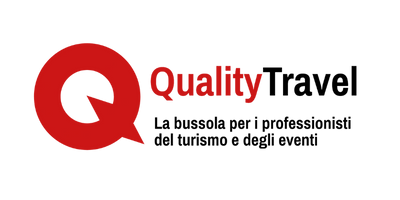May is turning to end and for those involved in the events industry it is absolutely one of the toughest months: last second and/or unlikely requests, cross-references and so urgent tasks as to be scheduled for yesterday – all this, without losing sight of the damned and insidious ROI.
Everyone must be on the pitch, always, 24h: events to organize, events to attend, PR to make, planes to take, ready-made suitcases and future-oriented eyes to pick up the best solutions – the most powerful ones, those that competitors haven’t yet adopted. In short… a spasmodic pursuit of innovation: adrenaline at breakfast, customer anxiety at lunch, problem solving for dinner and private life in trouble.
We get to be constantly polished, but with Xanax in heels, smartphone on the pillow and blind eyes alternating with uncontainable sleeping. If all goes well, just a full-time weekend is needed to recover, but if anything goes wrong, if the accumulated stress is too much, and too long-lasting, when you least expect it everything stops. Tiredness suddenly emerges, in the most strange and sometimes cryptic ways. After all our body speaks a language of its own. And here come headaches, lack of appetite, chest pains, weeping crisis, discomfort, stomach pains, back pains, cynicism, irritability, apathy, frustrations and negative reactions to colleagues and family members. In short, we feel totally burnout.

How do we get to this point?
I won’t be dwelling on burnout and its origin. But I want to focus on a detail. Many case studies have shown that burnout comes up as a problem of the individual, but it is actually closely related to the social/work context in which the individual himself is inserted. Working dynamics as well as their environment affect the way people interact and perform their job. And when the working environment doesn’t care for its people, this risk exponentially increases as it spreads like an infectious disease among staff members. An unhappy employee is unproductive and unreliable. Think about it being the whole staff…
In a recent article published on Il Sole 24 Ore, Marina Salamon stated that «only companies where “people feel fine” will get to last long, because only they will experience true product and process innovation, involving all their employees and collaborators. And it’s not enough: a brilliant future is just for those companies which will get to build value over time, not just short-term economic results, in favour of those who drive them»

What can a company do to prevent burnout?
Companies should promote on one hand professional engagement and on the other a balance between the work environment and the individual. Some hints:
- equally split the workload considering both skills and inclinations;
- let people actively participate in decision-making;
- foster style personalization and time flexibility;
- set realistic and credible targets, consistent with organizational practices;
- create and increase the feeling of being a part of the team;
- recognize the value of diversity and the contribution of each.
What can each of us do?
We will talk about this another time. I would just like to amicably provoke you.
Why are we positive that we need to answer to text messages and emails at any time of day and night? And why do we think this is the way to take good decisions?
I don’t want to risk tonight. I will thus switch off my phone and I take a digital detox drink!


